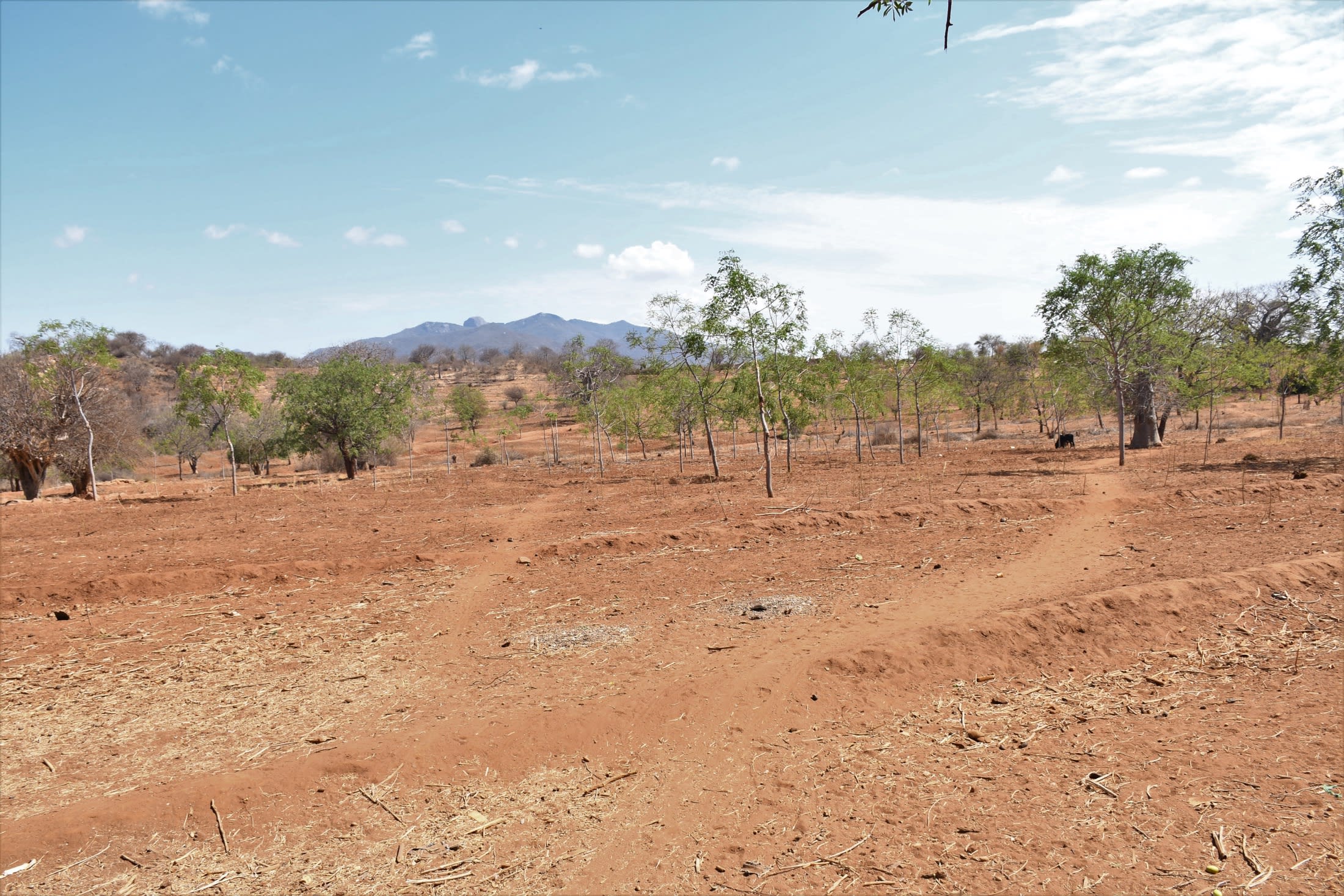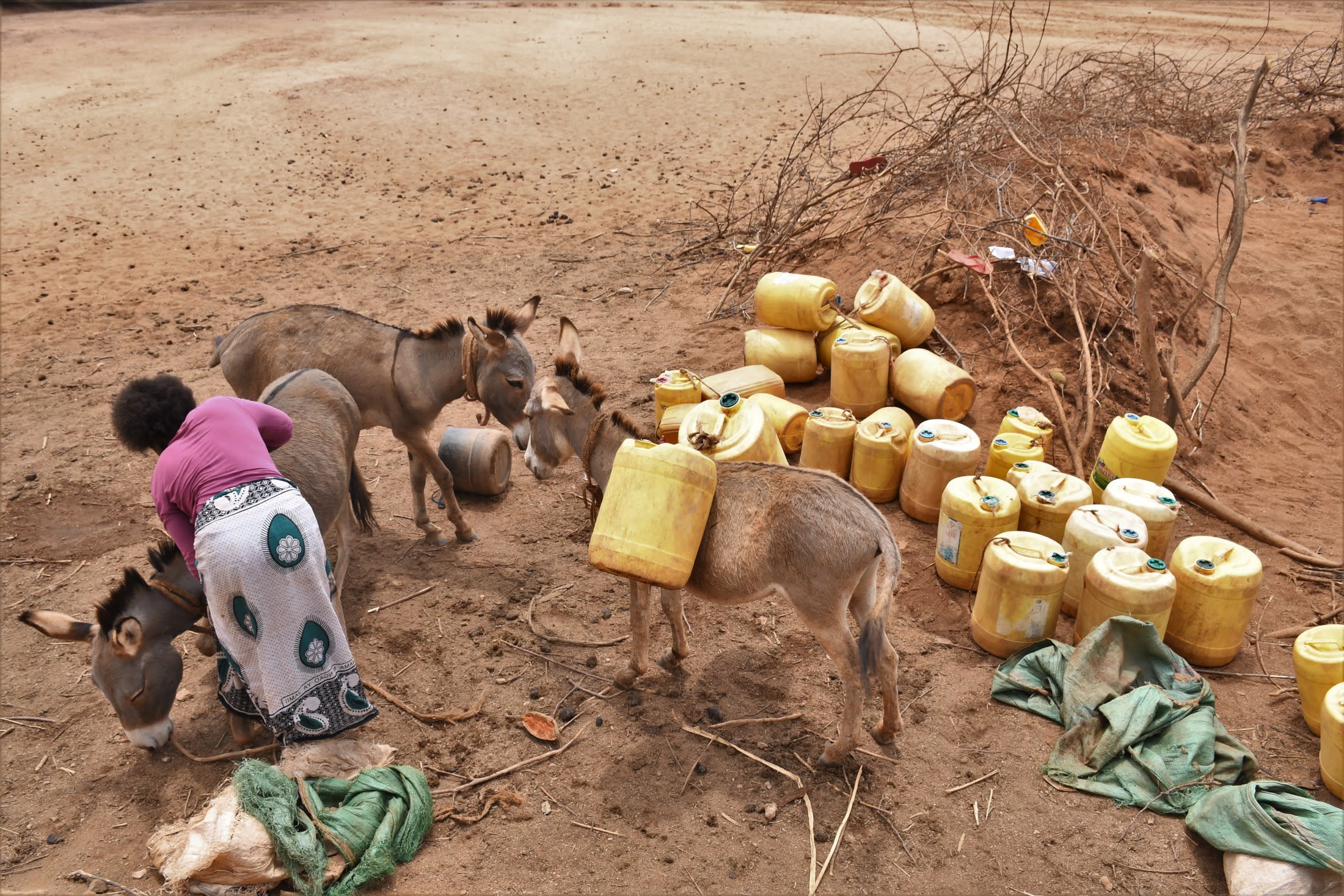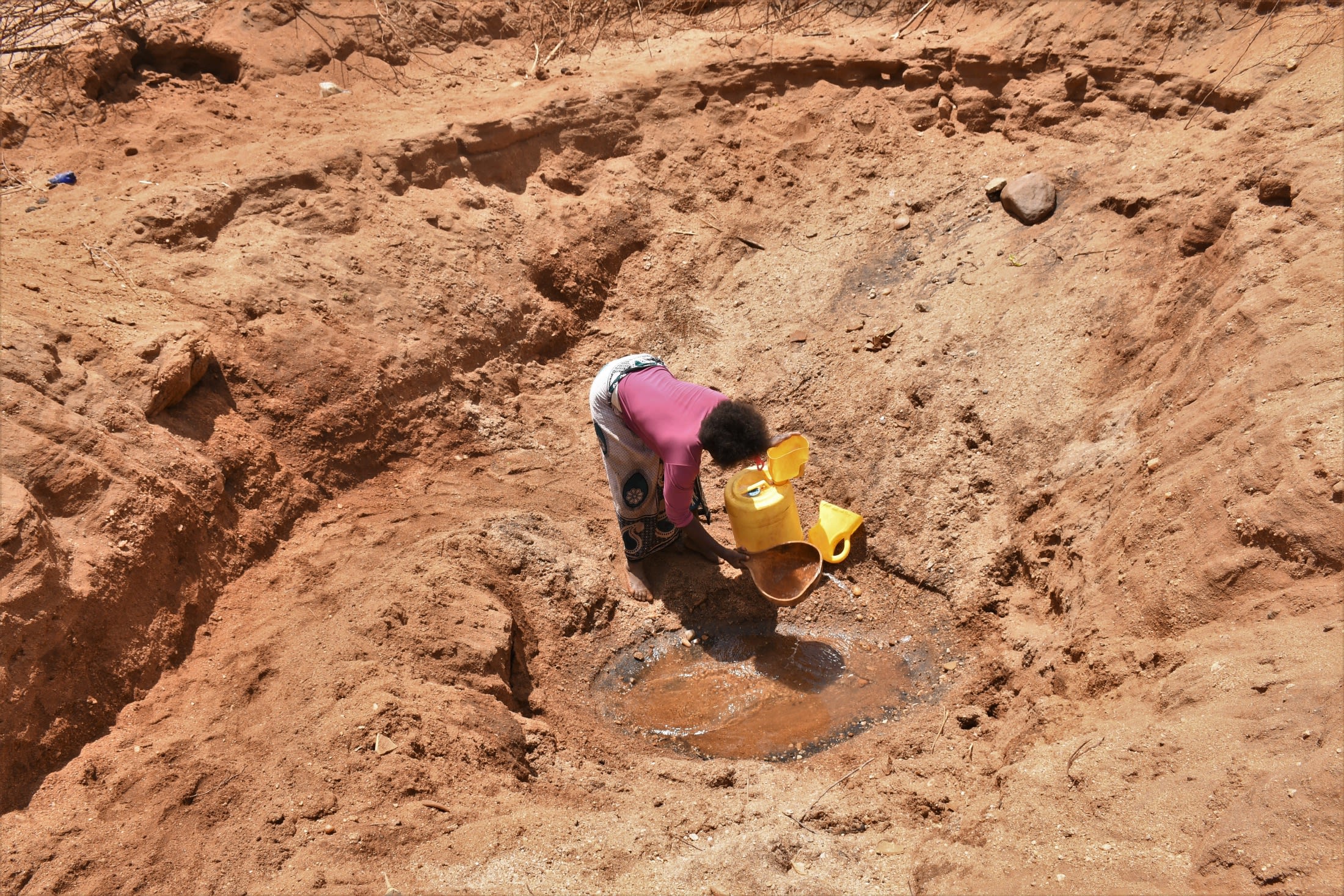Koriro, a community of 1,000 people, is rural in a semi-arid region characterized by indigenous trees, thorn bushes, and drought-resistant crops. Water is challenging to come by in this region and a daily struggle.

Community members must walk several hours, up to 5 kilometers (over 3 miles) from their homes to collect their daily water, leaving them drained, as shared by Jones Mutisya, a 48-year-old farmer. "I have to go fetch water for my family, but I return home feeling exhausted due to the long distance under the burning sun."
Each morning wives (and some husbands) tasked with the burden of fetching water for the family, wake up early with hopes that they will get to the scoopholes to collect water in time before it runs out. The scoop holes do not have sufficient water to satisfy the entire community, resulting in long queues and quarrels.

Older children in the community usually accompany their parents because they have to bring water to school, as shared by Monica M., age 17: "The long distance leaves me exhausted, and my academic performance has been adversely affected. Since water is inadequate, I have to use water sparingly at home; therefore, I lack enough water to improve my hygiene and sanitation."
Because of the distance and the time it takes, they can only make one or two trips to the water point a day but still do not return home until the afternoon to embark on other activities. With time and energy wasted, all other areas of productivity in their daily lives suffer.

The water from the scoop holes is salty and unsuitable for drinking. It is open to human and animal contamination (excrement from donkeys, goats, and cattle), exposing the residents to infections such as dysentery, typhoid, and amoeba.
Rarely, a few community members are fortunate enough to own a tank to try to collect water when it rains, but in this area of Kenya, that does not hold much promise.
The sand dam that this community needs will eradicate the long walks to the scoopholes by providing water to the new community well.
Reliable Water for Koriro
Our main entry point into Koriro Community has been the Usingilaa Self-Help Group, which is comprised of households that are working together to address water and food scarcity in their region. These members will be our hands and feet in both constructing water projects and spreading the message of good hygiene and sanitation to everyone.
Hand-Dug Well
This particular hand-dug well will be built adjacent to a sand dam project, which will supply clean drinking water once it rains. We have supplied the group with the tools needed for excavation. With the guidance of our artisans and mechanics, the excavated well will be cased, sealed with a well pad, and then finished with a new AfriDev pump.
Excavation takes a month or more on average, depending on the nature of the rock beneath. Construction of the well lining and installation of the pump takes 12 days maximum. The well will be lined with a concrete wall including perforations so that once it rains, water will filter in from the sand dam.
This well will bring clean water closer to families.
New Knowledge
These community members currently do their best to practice good hygiene and sanitation, but their severe lack of water has been a big hindrance to reaching their fullest potential.
We will hold hygiene and sanitation training sessions with the Self-Help Group and other community members to teach about important hygiene practices and daily habits to establish at the personal, household, and community level. This training will help to ensure that participants have the knowledge they need to make the most out of their new water point as soon as water is flowing.
One of the most important topics we plan to cover is the handling, storage, and treatment of water. Having a clean water source will be extremely helpful, but it is useless if water gets contaminated by the time it is consumed. We will also emphasize the importance of handwashing.
We and the community strongly believe that all of these components will work together to improve living standards here, which will help to unlock the potential for these community members to live better, healthier lives.
We typically work with self-help groups for 3 to 5 years on multiple water projects. We will conduct follow-up visits and refresher trainings during this period and remain in contact with the group after all of the projects are completed to support their efforts to improve sanitation and hygiene.

 Protected Dug Well
Protected Dug Well
 Rehabilitation Project
Rehabilitation Project






























